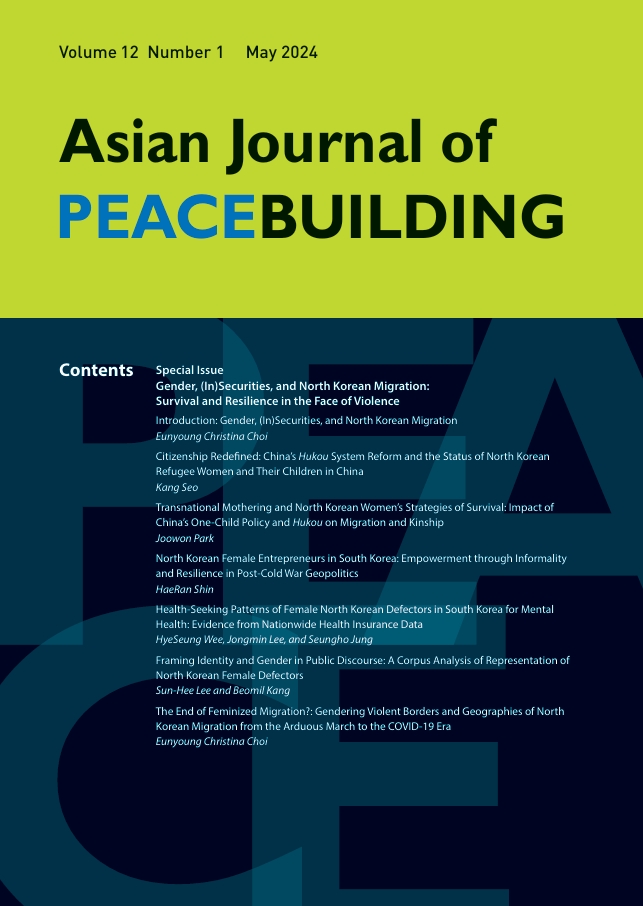Why do so many North Korean women resort to leaving their children born in China and resettle alone in South Korea? What survival strategies have they employed? And what conditions contribute to them becoming transnational mothers? To answer, this article explores the status of North Korean border-crossers in China, the influence of the one-child policy and industrialization on North Koreans’ gendered migration, and China’s hukou household registration system. Drawing on ethnographic research, the article argues that the mothers’ migration and kinship are grounded in a search for security, repositioning themselves for greater control of their lives and futures. Practices of transnational mothering emerge as North Korean women resettle in South Korea and become long-distance mothers to their children who remain with their Chinese fathers.
Back Issues
Special Issue_Gender, (In)Securities, and North Korean Migration: Survival and Resilience in the Face of Violence
Transnational Mothering and North Korean Women’s Strategies of Survival: Impact of China’s One-Child Policy and Hukou on Migration and Kinship
Joowon Park pp. 35-51 doi: 10.18588/202405.00a421
PDF Download

